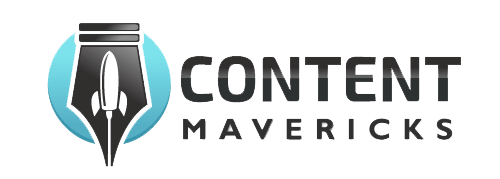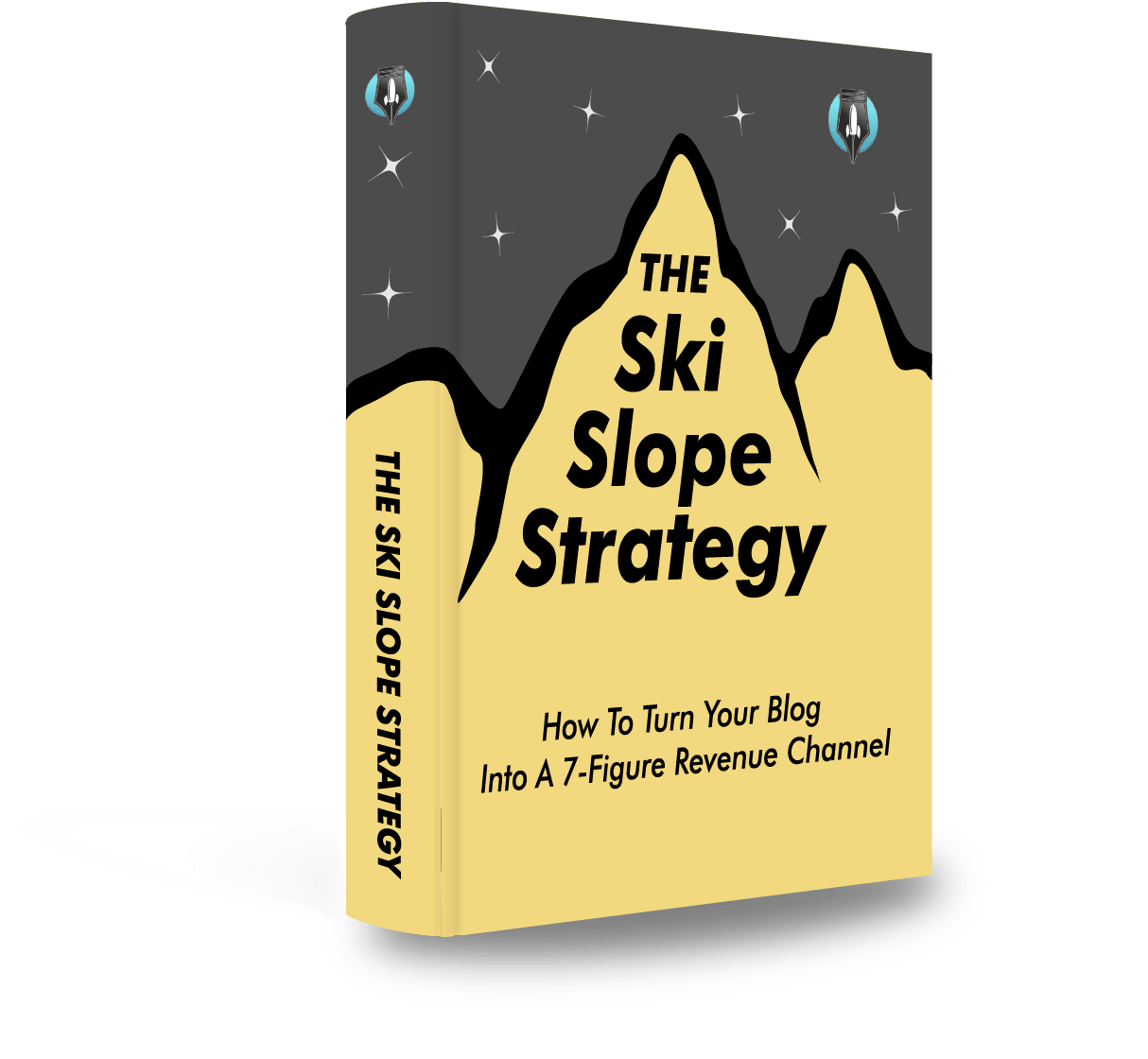Today there are 73 different CRMs for manufacturing. We spent 73 hours comparing the top 50 to find the seven best you can use to streamline your manufacturing and manage your sales process.
What is the Best CRM for manufacturing?
- Salesforce — best of the best
- Zoho CRM — best for small businesses
- NetSuite — best for enterprises
- Pipedrive — best for sales
- Keap — best for automation
- HubSpot — best for contact management
- FreshSales — best for personalization
1. Salesforce
Our Verdict — Best Of The Best
Price: Starts at $300/year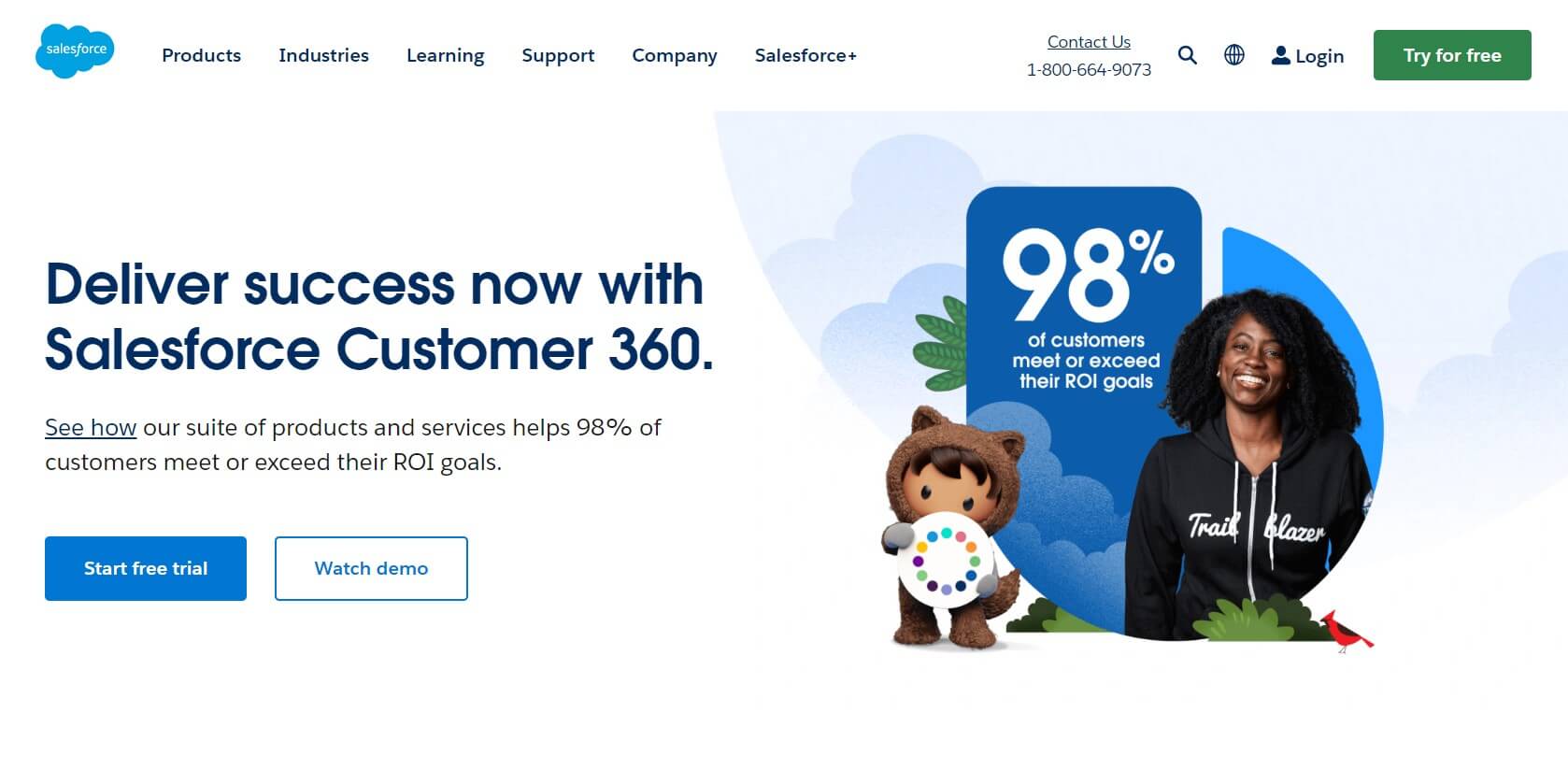
Salesforce is the best of the best because of its high customizability for manufacturers, wide range of third-party app integrations, and order tracking features.
The Best Part:
- Order tracking made easy. Salesforce enables you to keep track of your sales orders, product catalogs, and create quotes, all under the same roof.
The Worst Part:
- Yearly pricing plans. Salesforce subscriptions start with a pretty steep commitment of $300/year.
Get it if you want a comprehensive CRM for your manufacturing business.
I recommend you set up your orders and leads during the free 30-day trial, then sign up for a yearly Enterprise subscription at $1,800/year per user to get full access to customization and CRM features.
(30-day free trial)
Best For
Salesforce is best for manufacturing businesses of all sizes who want a very customizable CRM.
Top Features
- Integrate with other tools and platforms. Use integrations to manage your customer interactions across all manufacturing and service stages.
- Full CRM in your pocket — even when offline. Create new records and manage your leads to always keep momentum even when disconnected.
- Keeps everyone busy. Forward inquiries and orders to the right department in a matter of seconds and keep your pipeline full.
- The sky's the limit with automation. Get a ton of time back with customized workflows for your repetitive tasks and sales pipeline.
- Make data-driven decisions. Analyze your sales data, track customer behavior, and identify trends to make more informed business decisions.
Pricing
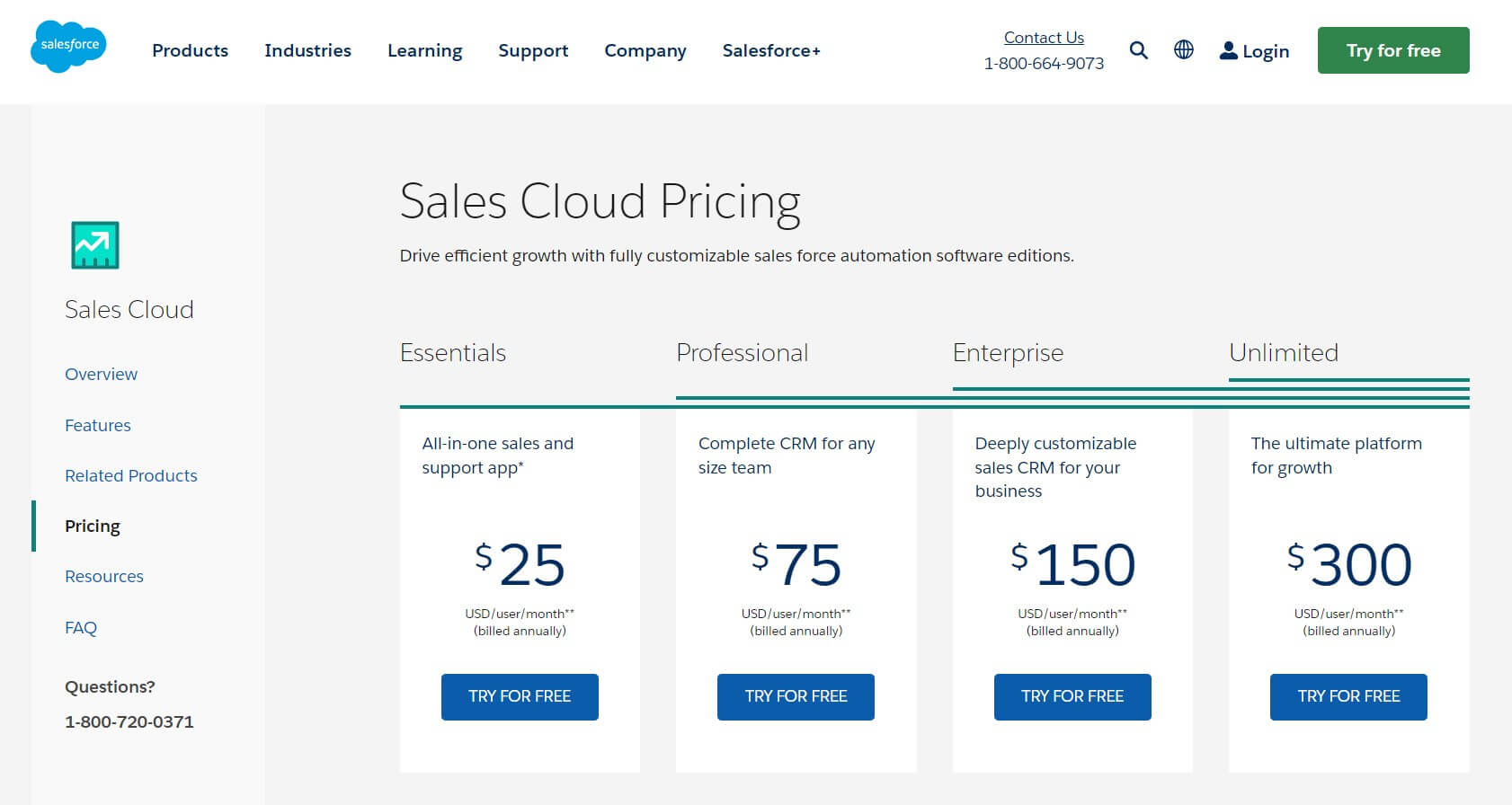
Salesforce offers four pricing plans:
- Essentials: $300/year for manufacturers looking for essential tools to manage sales and support.
- Professional: $900/year for manufacturers who want a complete CRM solution and KPI-based forecasts.
- Enterprise: $1,800/year for manufacturers who want an intelligent CRM solution with to-the-point reporting and internal process automation.
- Unlimited: $3,600/year for manufacturers who want a very robust CRM with all necessary tools for fully automating internal standard tasks and sales.
Try Salesforce today with a free 30-day trial.
2. Zoho CRM
Our Verdict — Best For Small Businesses
Price: Starts at $20/month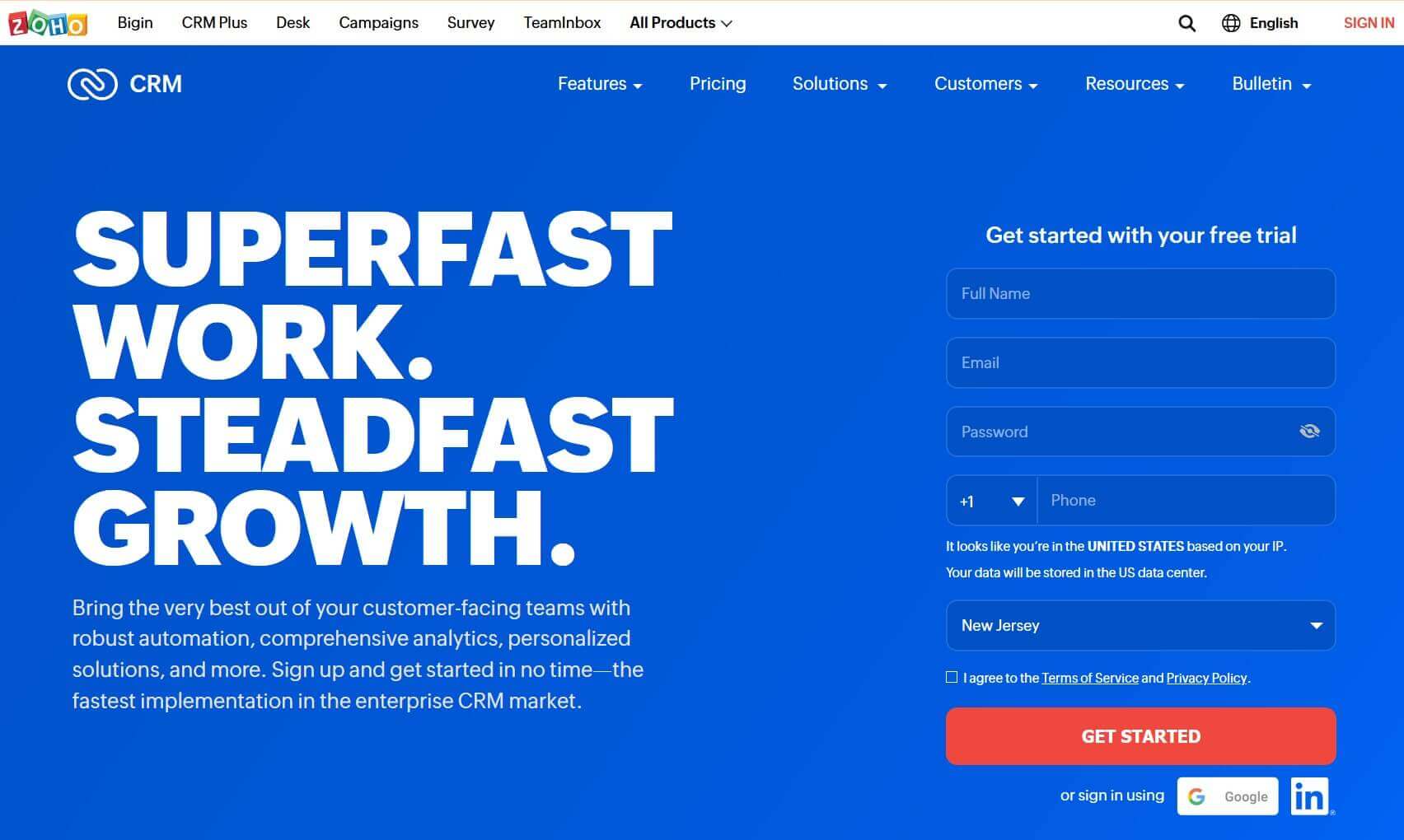
Zoho CRM isbest for small manufacturing businesses because of its budget-friendly prices, user-friendly interface, and how much CRM features it delivers with such competitive prices.
The Best Part:
- Simplest interface among CRMs. Zoho lets you get started super quickly, thanks to an incredibly streamlined user experience.
The Worst Part:
- Issues with the Android app. Zoho's iOS app seems to be great, but the Android app can get a bit laggy, according to online reviews.
Get it if you want a great CRM for your small manufacturing business.
I recommend you get started with the free 15-day trial to integrate and set up the CRM, then sign up for a yearly Professional plan at $276/year per user to access full CRM and scaling features.
(15-day free trial)
Best For
Zoho CRM is best for small manufacturing businesses that want a reliable CRM for growth.
Top Features
- Say goodbye to boring tasks. Bring down time spent on manual data entry and streamline repetitive tasks with Zoho's automation features.
- Always see what’s coming. Use forecasting tools to predict future revenue and make informed business decisions.
- Dedicated Google Ads CRM. Track your Google Ads campaigns and performance data directly within your CRM.
- 21st-century inventory management. Monitor product inventory levels and receive alerts when stocks are running low.
- Know where the money is. Prioritize leads based on their behavior and interactions with your brand using Zoho's scoring feature.
Pricing
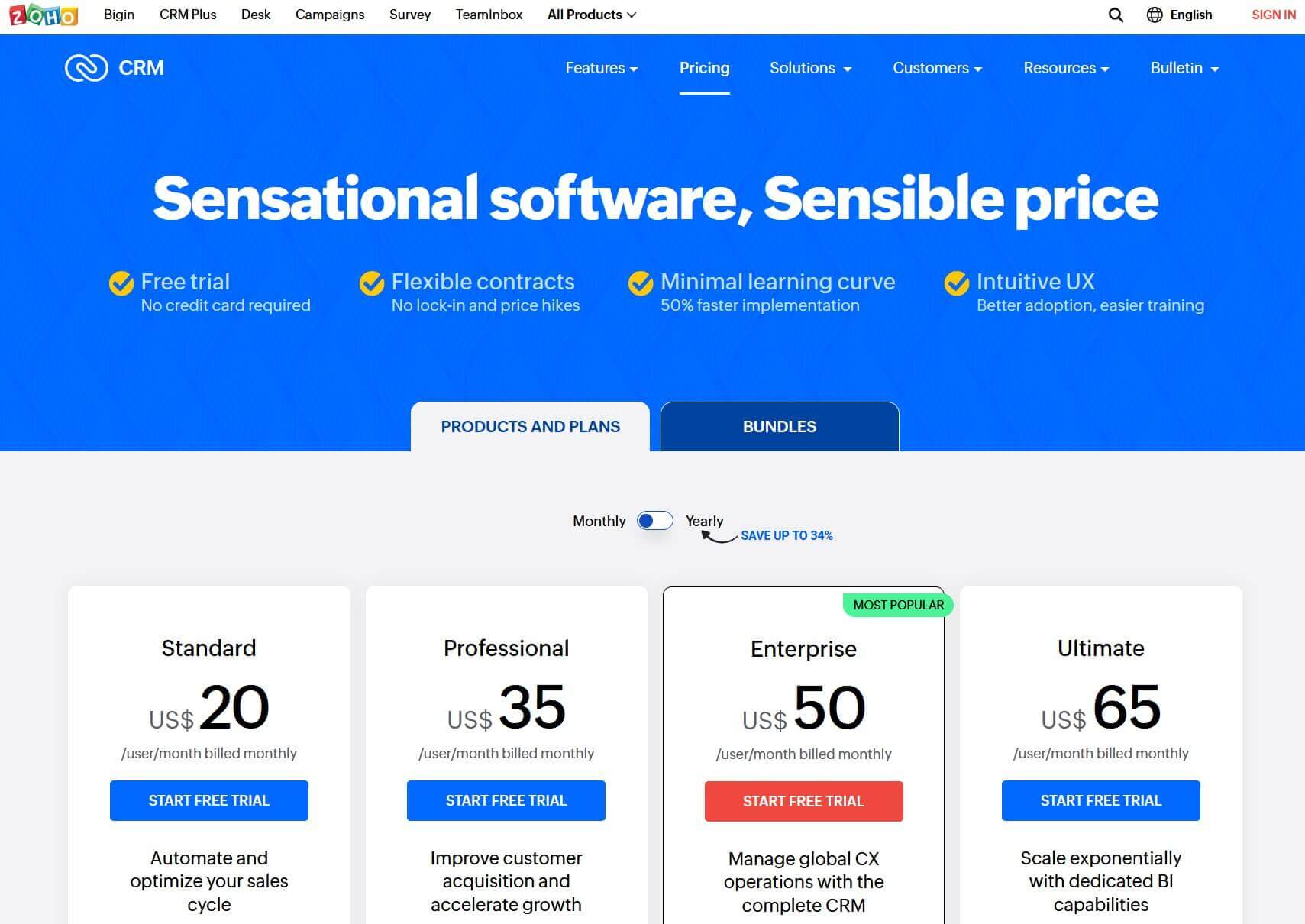
Zoho CRM offers four pricing plans:
- Standard: $20/month per user for manufacturers who want a solid basic CRM for sales and business operations.
- Professional: $35/month per user for manufacturers who require advanced customization, reporting, and growth options for their CRM.
- Enterprise: $50/month per user for manufacturers who need a complete CRM solution with advanced sales, product customization, marketing, and operations management features.Ultimate: $65/month per user for manufacturers who require the most advanced CRM capabilities supported with BI (business intelligence) capabilities.
Annual plans provide up to a 34% discount.
Try Zoho CRM today with a free 15-day trial.
3. NetSuite
Our Verdict — Best For Enterprises
Price: Custom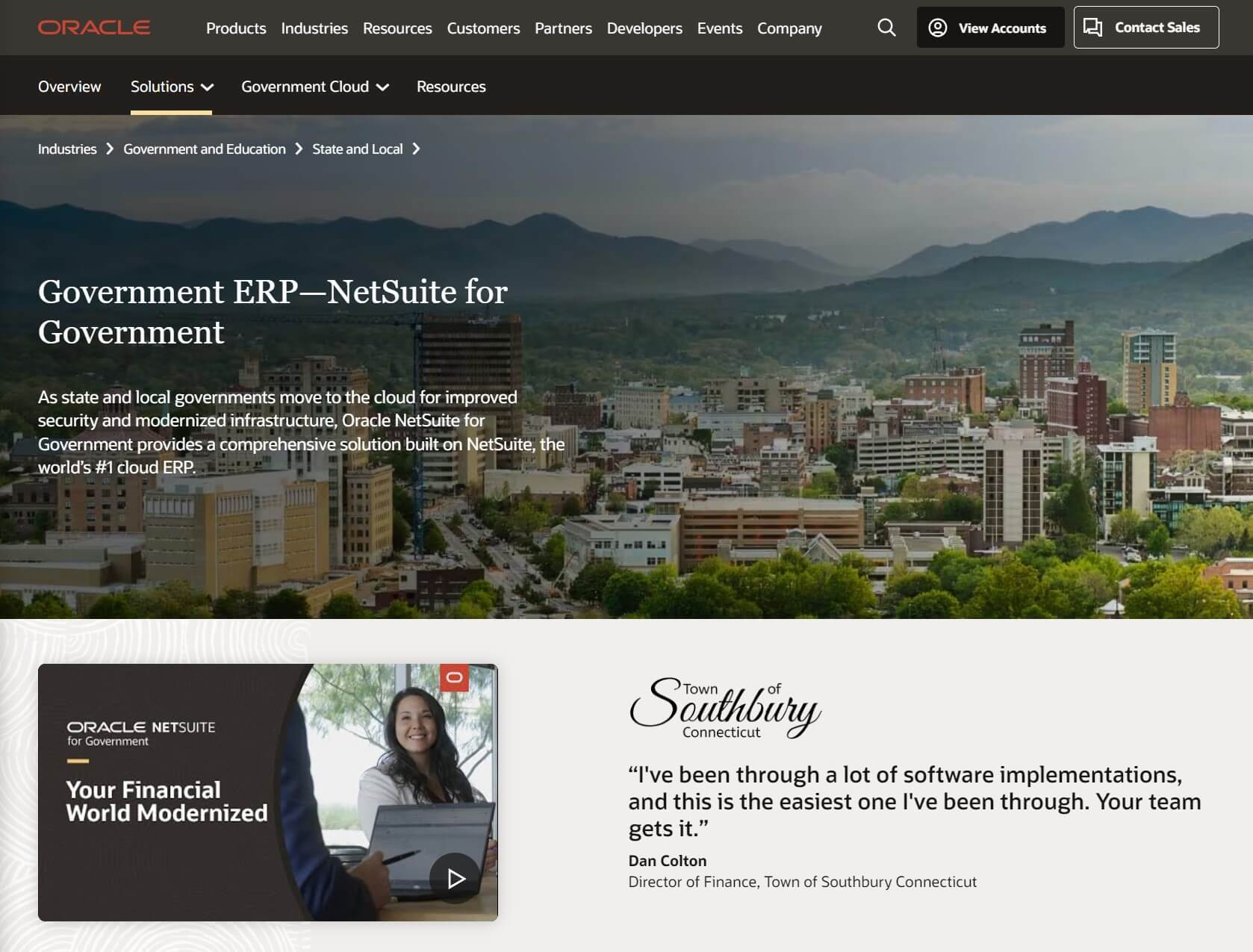
NetSuite is the best for manufacturing enterprises because of its solid accounting tools, complex automation capabilities, and supply chain management features.
The Best Part:
- Killer CRM for enterprise resource planning (ERP). NetSuite lets you to simplify your ERP by allowing you to keep every little thing in check.
The Worst Part:
- Hefty investment. You'll need to hire CRM pros to set up your NetSuite CRM, and it's a good idea to have a few of them on your payroll.
Get it if you want a very flexible CRM that can handle any level of complexity.
I recommend you book a free product tour with NetSuite, then negotiate your package with the sales team based on your needs and the number of users.
(free demo)
Best For
NetSuite is best for enterprises that want a powerful manufacturing CRM to automate and streamline at scale.
Top Features
- Automation for sophisticated financial operations. Take full control of your enterprise's finances and automate complex accounting processes.
- Supply chain and inventory optimization. Forecast demand for products and optimize inventory levels with accurate data.
- Take employee productivity to the next level. Keep a fully engaged team with HR automation features and bring administrative HR costs down.
- Business intelligence-powered decision making. Leverage the right insights into all areas of your company to drive unlimited growth.
- Comprehensive e-commerce solution. Build your site using NetSuite and seamlessly link it to your whole CRM to manage orders, inventors, support, financials, and much more in only one place.
Pricing
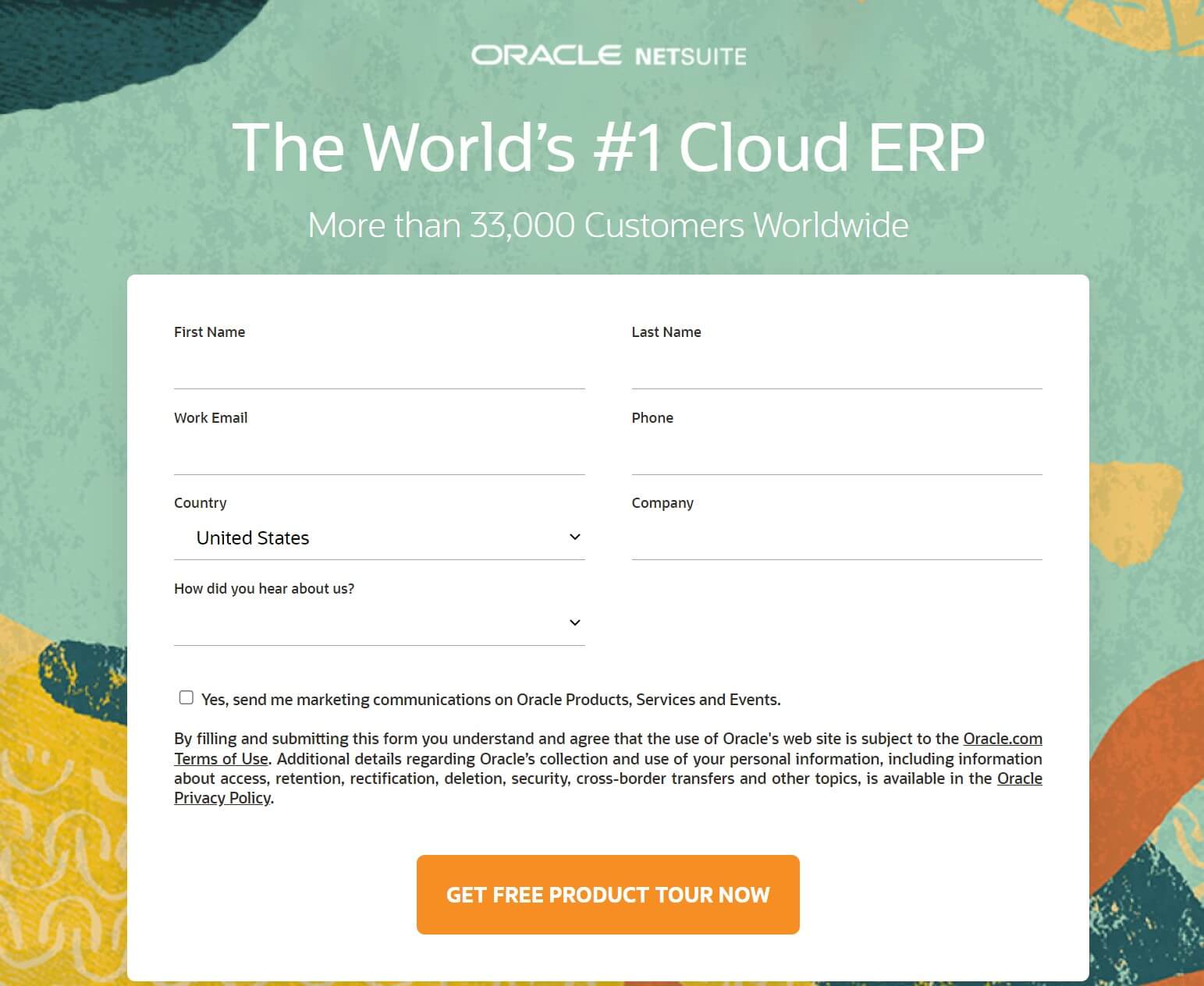
NetSuite offers a single pricing plan:
Custom pricing: Monthly sales quote, for manufacturing businesses with more than ten users looking for a CRM to streamline automation, human capital, commerce, accounting, ERP, finances, and more.
Try NetSuite today with a free demo.
Our Top Three Picks
Here’s a quick summary of our top three picks:
- Salesforce — best of the best
- Zoho CRM — best for small businesses
- NetSuite — best for enterprises
Here’s a quick comparison of our top seven picks:
Tool | Entry Offer | Pricing |
|---|---|---|
Salesforce | 30-day free trial | Starts at $300/mo |
Zoho CRM | 15-day free trial | Starts at $20/mo |
NetSuite | Free demo | Custom |
Pipedrive | 14-day free trial | Starts at $19.90/mo |
Keap | 14-day free trial | Starts at $189/mo |
HubSpot | 14-day free trial | Starts at $20/mo |
FreshSales | 21-day free trial | Starts at $18/mo |
Here are the top 50 CRMs for manufacturing we considered in this review:
- Salesforce
- Zoho CRM
- NetSuite
- Pipedrive
- Keap
- HubSpot
- FreshSales
- Sugar CRM
- Microsoft Dynamics 365
- Method:CRM
- Maximizer
- Insightly
- Creatio CRM
- Zendesk Sell
- Workbooks CRM
- Thryv
- TeamWave
- SYSPRO CRM
- Spiro
- SolidPerformers CRM
- Soffront CRM
- SAP CRM
- Sage CRM
- Prospect CRM
- PipelineDeals
- PCMag
- OnePageCRM
- Nutshell
- monday sales CRM
- Knack CRM
- Funnel CRM
- Edge offers CRM
- Commence CRM
- Claritysoft CRM
- CentraHub CRM
- BenchmarkOne
- Aptean CRM
- Apptivo
- Torqus POS
- Teknovate
- REP
- Oorwin
- FinCRM
- Expand ERP
- CAMS ERP
- Mailchimp
- Astral Real Estate ERP
- Acme Insight
- CRM4Sure
- TFAT ERP
The Bottom Line
To recap, here are the best CRMs for manufacturing software to try this year:
- Salesforce — best of the best
- Zoho CRM — best for small businesses
- NetSuite — best for enterprises
- Pipedrive — best for sales
- Keap — best for automation
- HubSpot — best for contact management
- FreshSales — best for personalization
